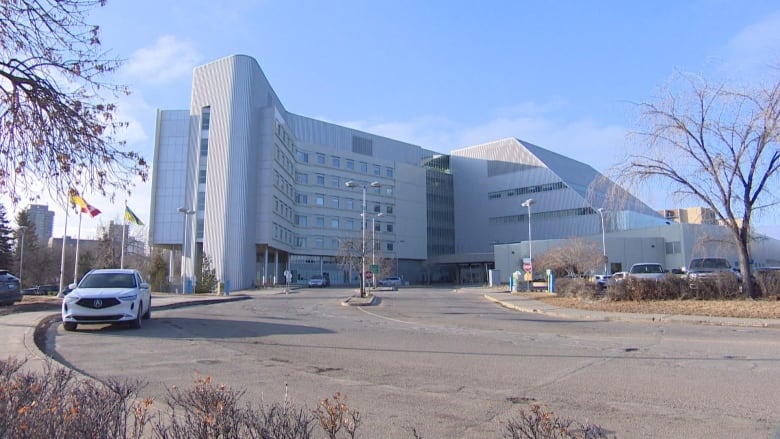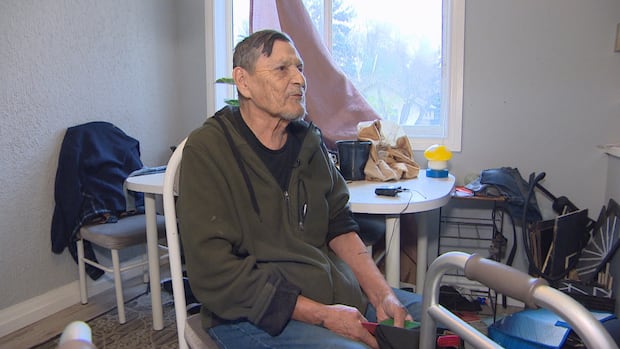
A 73-year-old Métis man says he is angry and wants to know why his ponytail was cut without his consent while he was in hospital for a hip surgery.
On Aug. 30, Ruben St. Charles fell out of his bed, breaking his hip and causing him to need medical attention. His wife called an ambulance and he was taken to the Royal University Hospital (RUH) in Saskatoon.
He had surgery on his hip, but once he came to afterward he saw that his ponytail, which he said was about a foot long, had been snipped off.
“I checked my head and all that, I thought to myself, ‘What the?’ No ponytail, nothing. My hair was standing up,” St. Charles said.
St. Charles said he started screaming.
He said he wanted to give his braid to his sister, but at 73 he doubts he’ll be able to grow it out that long again.
“I was supposed to hand that down from generation to generation. My two older brothers passed away and I couldn’t give that to them,” St. Charles said.
“My whole dreams are gone right there. Now what I want to do, I want to die peacefully and I don’t want to hold resentments.”
On Aug. 30, Ruben St. Charles fell out of his bed, breaking his hip and causing him to need medical attention. His wife called an ambulance and he was taken to the Royal University Hospital in Saskatoon. He had surgery on his hip, but once he came to afterward he saw that his braid, which he said was about a foot long, had been snipped off.
“Why did they do that?”
St. Charles said he doesn’t remember much of the hospital trip, but that he did not consent to his ponytail being cut.
He said there were also no cuts or wounds on his head, so he’s confused why his hair would have to be cut off.
“I just landed right on my hip, right here, and that was it,” he said. “I didn’t didn’t hurt myself anywhere else.”
Bonnie Marwood, a patient health advocate for Métis Nation-Saskatchewan, helped St. Charles lodge a formal complaint.
“What on earth would, you know, provoke somebody to cut someone’s hair when you’re operating on his hip?” Marwood said.

St. Charles didn’t mince words when recalling the incident, saying he swore and yelled after realizing his ponytail had been cut. He said this led to him being transferred to City Hospital from RUH.
“What bothers me more is why? Why did they do that to me?”
SHA investigation
Marwood said a Saskatchewan Health Authority (SHA) representative met with St. Charles in person at the hospital, told him the SHA would get to the bottom of it and also offered a letter of apology.
“That’s all he got. a letter from SHA saying that they were learning, and they would do better and they will give him any more information when they find,” Marwood said.
St. Charles said he expects more than just a written apology. He said he wants the person who cut his ponytail to apologize in person and tell him why they did it.
“I just wanted to see them face-to-face and ask them why,” St. Charles said.
SHA said in an email to CBC that it is “committed to creating a culturally safe and respectful environment” in all its facilities.
“We acknowledge the deep cultural significance of hair and braids in First Nations and Métis cultures, and recognize that cutting hair without permission can cause emotional and spiritual harm, evoking past cultural trauma,” it said.
“The SHA extends its deepest apologies for this individual’s experience and we remain committed to engaging with this patient to understand and learn from this experience.”
The email said the SHA has escalated the situation to a “critical incident,” sparking a formal review by SHA leadership to investigate, implement corrective actions and improve patient care.
